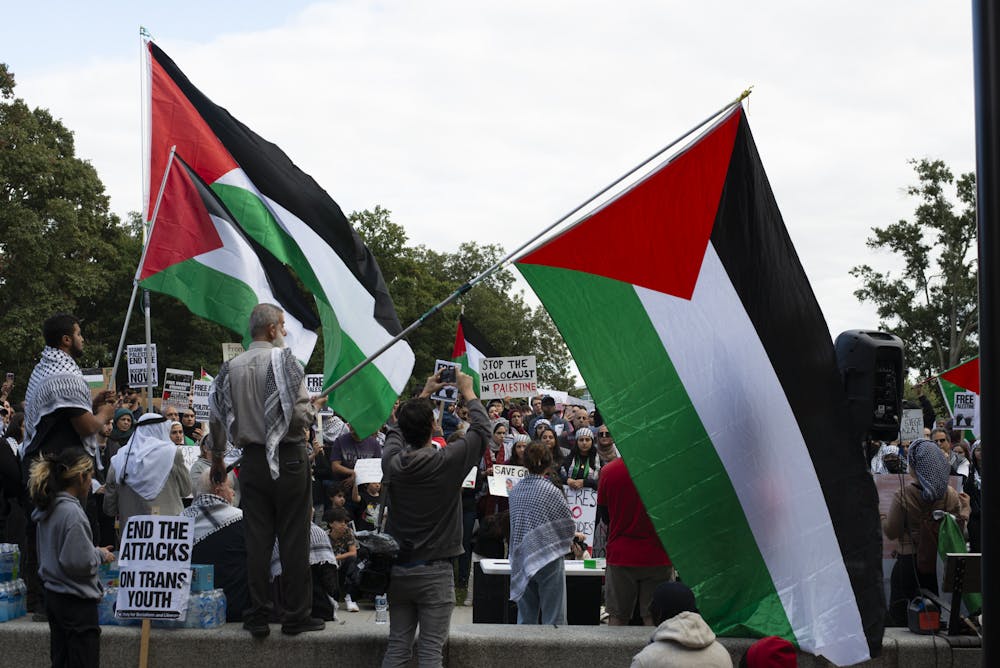Content warning: This column contains mention of suicide and violence.
On Feb. 25, Aaron Bushnell, an active duty member of the U.S. Air Force, set up a livestream in front of the Israeli embassy in Washington, D.C. Wearing his combat uniform, he doused his body in gasoline, placed a camouflage hat over his head and lit himself on fire. As flames engulfed his body and he collapsed, he was surrounded by police officers — one of which held a gun pointed at his burning body throughout the entire video. Bushnell’s last words were “Free Palestine.” He died from his injuries later that day.
In the days following his suicide, Bushnell’s act of protest has been subject to a range of media discourse, with some praising this self-immolation and others finding fault in it. I’m not here to endorse nor critique the way this man chose to end his life; that’s not my, or anybody else’s, place to do.
It is, however, worth discussing what Bushnell died fighting for: Palestinian liberation.
In the past months we have seen nonstop coverage of the genocide Israel is committing. Accord to reporting from The Associated Press, more than 100 people were killed as the Israeli military opened fire on a group of people racing to receive food from aid trucks last week in Gaza City. Those who have survived months of relentless bombing are facing a famine, further starved by Israel.
In the ongoing debate over Israel’s actions in Gaza, there is a consistent return to the tragic Oct. 7 attack by Hamas that killed more than 1,000 Israelis and foreigners.
The level of the massacre in Gaza cannot be justified in the name of self-defense. This response is an attempt to provide excuses for a genocide we witness each day with our own eyes. Every day on social media, more and more violent videos surface of atrocities occurring in Gaza.
Around the world, we sit and watch silently as thousands of civilian men, women and children are being decimated by Israel.
More specifically, this campus is watching silently.



